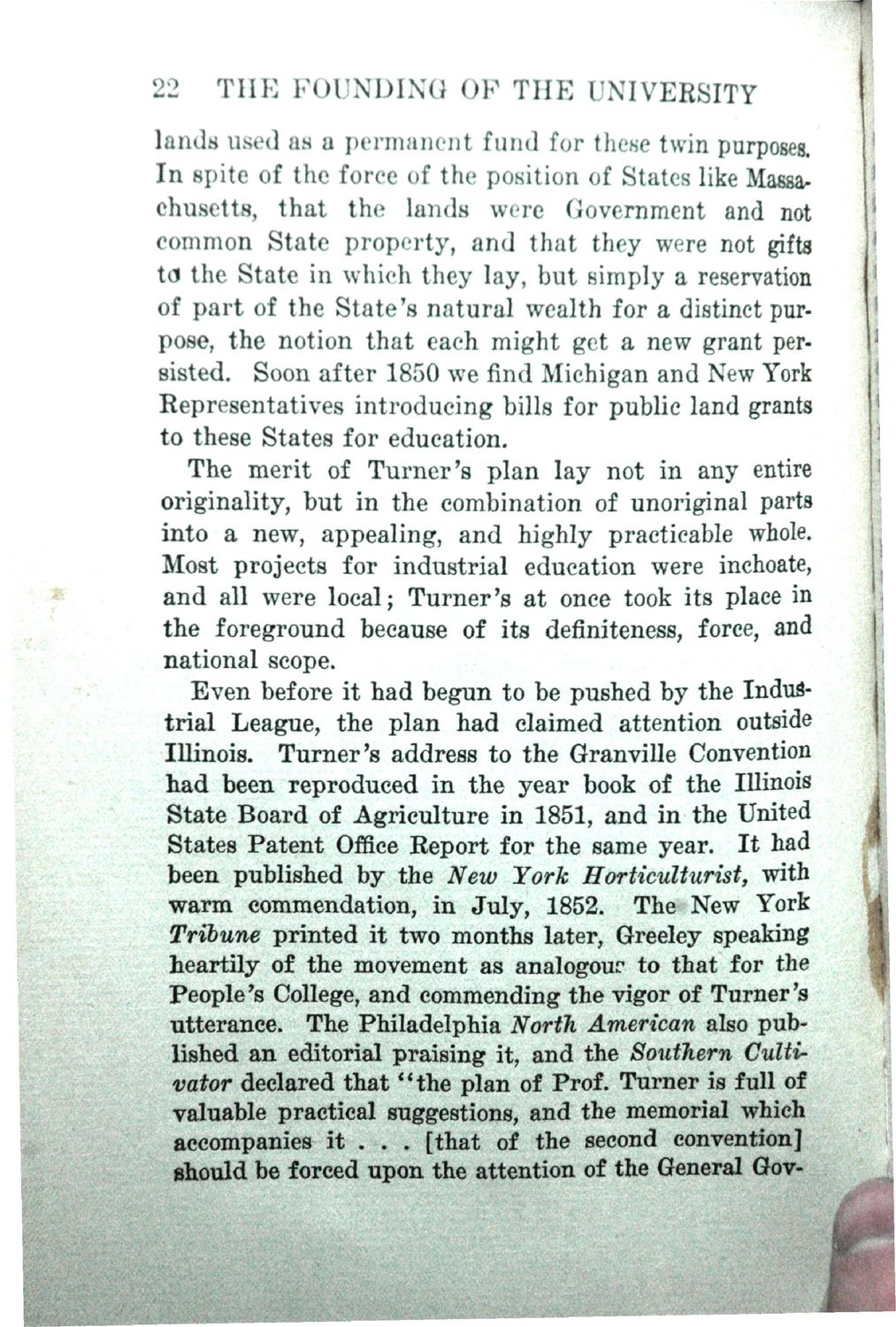| |
| |
Caption: Book - History of the University (Nevins)
This is a reduced-resolution page image for fast online browsing.

EXTRACTED TEXT FROM PAGE:
22 THE FOUNDING OP THE UNIVERSITY lands used as a permanent fund for these twin purposes, In spite of the force of the position of States like Massachusetts, that the lands were Government and not common State property, and that they were not gifts td the State in which they lay, but simply a reservation of part of the State's natural wealth for a distinct purpose, the notion that each might get a new grant persisted. Soon after 1850 we find Michigan and New York Representatives introducing bills for public land grants to these States for education. The merit of Turner's plan lay not in any entire originality, but in the combination of unoriginal parts into a new, appealing, and highly practicable whole. Most projects for industrial education were inchoate, and all were local; Turner's at once took its place in the foreground because of its definiteness, force, and national scope. Even before it had begun to be pushed by the Industrial League, the plan had claimed attention outside Illinois. Turner's address to the Granville Convention had been reproduced in the year book of the Illinois State Board of Agriculture in 1851, and in the United States Patent Office Report for the same year. It had been published by the New York Horticulturist, with warm commendation, in July, 1852. The* New York Tribune printed it two months later, Greeley speaking heartily of the movement as analogous to that for the People's College, and commending the vigor of Turner's utterance. The Philadelphia North American also published an editorial praising it, and the Southern Cultivator declared that "the plan of Prof. Turner is full of valuable practical suggestions, and the memorial which accompanies it pjj . [that of the second convention] should be forced upon the attention of the General Gov-
| |